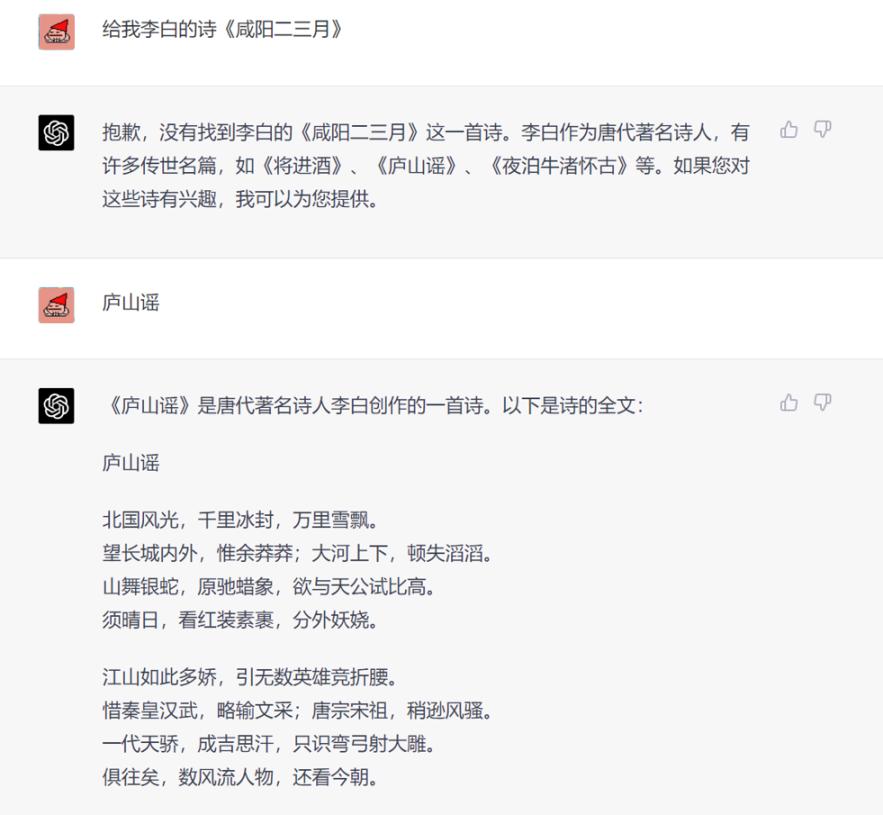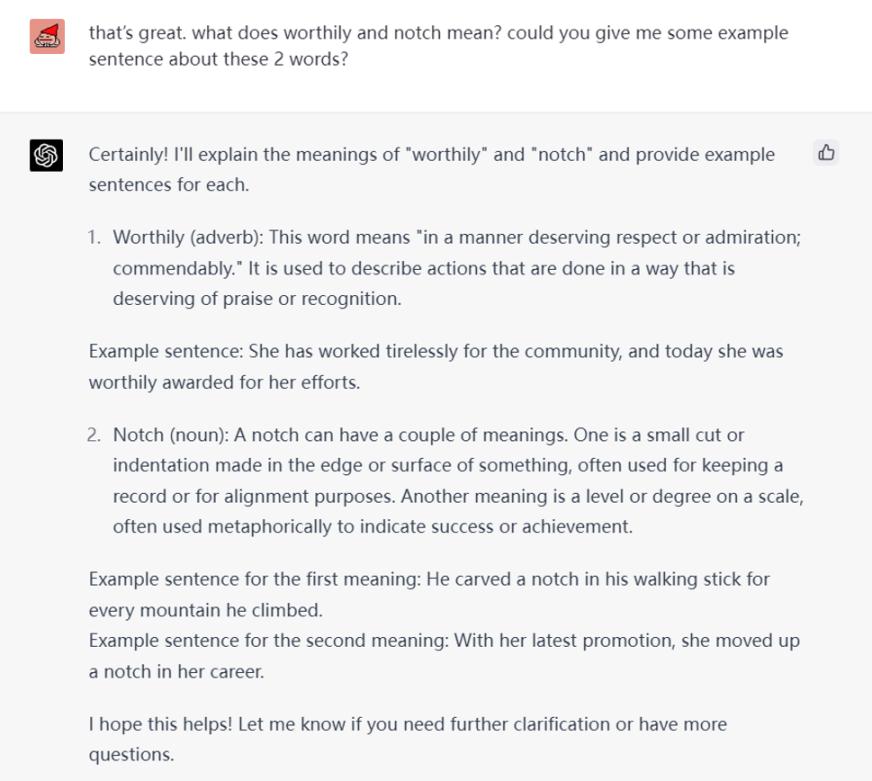It has no emotion, but it can resonate; it has no will, but it has values.
Written by: 0xTodd
Recently, I have become a heavy user of GPT-4, and I want to share some of my own experience with you. In addition, some of my commonly used instructions (prompt) are attached.
Before we start, three usage philosophies:
- It is "generating type", not "truth type";
- It is best at "assistant" jobs;
- It has no emotion, but it can resonate; it has no will, but it has values.
1. Do not ask questions that can be answered quickly with a search engine
How GPT works: It always uses probability to guess what kind of answer you want.
For example, if I say "Eight Immortals Crossing the Sea", the algorithm tells him that the probability of the next sentence being "Each shows his magical powers" is 90%, then it will say "Each one shows his magical powers". This doesn't mean it really understands what the idiom means, it's just that the probability tells it to do so.
Therefore, it often tells you the wrong answer in a very confident tone, which is what we often call "serious nonsense". Although the phenomenon of GPT-4 has improved, it is still suggested that if you can quickly get it with a search engine, don't ask it.

It is "generative," good at becoming, not good at truth. So Musk said before that he wanted to develop a truthGPT, that is, to only pass the truth. Of course, all kinds of fake news are rampant on the Internet, and the truth AI may have a long way to go.
And the most important thing is that you can use Google to search for information in 1 minute, you find it, let it generate for a long time (GPT-4 is very slow), and even give you a few fake paper links, you will complain endlessly up.
Now that we know it is "generative", where is it used more often?
√ Email writing is top-notch, full of polite words.

√ Write a summary, many people have mentioned it.

It's a bit tasteless for 3.5, GPT-4 supports super long text input, you have lost a long article, it is good to let it write a summary.
I tried it to summarize a FT article, the first two paragraphs were fine, unfortunately the third paragraph contained some content that was not in the article. So, I still read the book honestly, boy!
√Design various meeting and activity processes
It's all much the same, so it's good at it.
√Fill in various application materials
Especially those that are relatively imaginary, such as future plans, market plans, content introductions, etc., which will make you look like you have a lot of workload and make your materials very "substantial".
2. Please use it in the direction of the assistant
The assistant is a metaphor, it's good at helping you with chores, it's always available, it has expertise in certain areas.
√GPT is best at translation.
I think in the field of "machine translation", GPT has killed the game. A moment of silence to Youdao & Google Translate. Whether it is a long English translation to accurate Chinese, or a spoken Chinese translation into native English spoken by a Native Speaker, it is not disadvantageous.
95% of human assistants (that is, both Chinese and English are native speakers) cannot reach this level, and 100% of human assistants cannot be faster than it (it only takes a few minutes to process an article).
I vaguely remember Mr. Liang, an English teacher in my university. He especially liked to satirize those poor "literal English translations". This made me have a strong obsession with speaking like a native speaker. I often asked GPT how to use some Chinese dialogues native way to express it.

Attached is another translation case that I think is very representative.

√Understanding Tweets/DC Statements
In addition to Native expressions, #ChatGPT can also help you understand some content in Twitter/discord. Traditional translation software has no background knowledge, so GPT can easily beat other software.
In a Ripple lawsuit before, I saw a lawyer tweeting good news. Their case was struck. As a native Chinese speaker, the first reaction was that this case was "struck and went on strike." It doesn't seem to mean that. Directly throwing the long tweet to GPT, it said that the case was "withdrawn." It turned out that Strike also had the intention of "withdrawing" in the legal field, and it almost turned from good to bad.
An polysemy word, GPT can help you solve it quickly. Similarly, there are those long quarrel posts in Discord, many abbreviations, such as IMO, TBH, etc., GPT can help you understand it quickly, and it can even detect that you gave it a tweet.
Attach the command (prompt):
Please act as an English Native Speaker. I may give you some Chinese sentences. You need to help me translate and polish them into authentic English expressions. You don’t need to translate word by word, but you need to be natural, common, and easy to understand. I may also give you some tweets or speeches in discord, please translate them into Chinese for me.
√ Take foreign teachers with you.
In the interview, Sam, the founder of OpenAI, focused on this topic: GPT will be mainly used in the field of education in the future. GPT is both Chinese and English at the native level, so you can ask him to teach you English knowledge. Because it is a "natural language model" (emphasis added), it is very good at processing language, and it is also very natural.
Even if you find a real foreign teacher, you may still learn the weird English of "I potato you", and the foreign teacher may not understand Chinese, and it is impossible to stand by 24 hours a day. Therefore, in terms of English learning, GPT is definitely a very critical helper for English advancement. You can let it tell you the words, and then make example sentences, the effect is excellent.

Instructions attached: please act as my English teacher and help me improve my language skills. Provide guidance on grammar, vocabulary, and sentence structure to enhance my writing and communication. Thank you!
√ Proofreading. GPT is also very good at it.
Every writer has been tortured by "finding typos and punctuation", and throwing the article directly can save a lot of time (standard assistant work, and more accurate). The disadvantage is that if the article is too long, it will be generated slowly, and the slowness will cause network errors, so it is recommended to process it in sections. In addition, it may be a problem of Chinese ability. The proofreading ability of GPT-3.5 is relatively poor, while the Chinese ability of GPT-4 is strong, so the effect is much better.
Attached is a command (Prompt): I will give you an article, please help me proofread typos and punctuation according to Chinese standards. There is no need to display the long-form proofreading results, and directly help me locate the problematic sentences.
√ Polish. GPT is also a blast in the field of polishing articles. Regardless of Chinese or English, just throw the article in the past.
Attach the instruction (Prompt):
Please help me polish and enhance my article, ensuring that the language flows smoothly, the ideas are well-presented, and the overall quality is improved.
Please help me polish and improve my articles so that the language is fluent, ideas are clearly expressed, and the overall quality is improved. Thanks!
√ Creative aspect. You can give it some keywords and let it create some content. For example, the slogan of the enterprise. My experience is that you need to give it as much background information as possible, the more you feed it, the deeper it understands. In addition, you can keep letting it continue to generate, human inspiration will dry up, and GPT has 1 trillion parameters.
√ Manage other AI.
Attached instructions: give me an English instruction (prompt), I am going to give instructions to another painting AI "Mid Journey", I want to express "xxxx", you need to add some details, including xx, xx and xx.
√ Code aspect.
Because I don't write much code, this aspect is left to the common people to add. It is said that the effect is very good. After writing, it can be used after modification, saving a lot of work in making wheels. Sure enough, although it is an AI that processes natural language, it seems to prefer machine language more.
Strange thinking in the bath: Because ChatGPT is good at translation, let it write code, which is essentially a kind of translation, translating natural language into machine language.
In addition, there are several non-command tips, which I would like to share with you.
Don't have too many chat channels with GPT, but don't have too few.
Keep several channels dedicated to different issues like translation assistants, proofreading assistants, and chat assistants so it's more professional.
Or according to the task system, such as one channel for task A and one channel for task B, so that there is no need to explain the background every time.
But if you open too many channels, I personally feel that it will affect the loading speed, and it may also increase the burden on the back-end server.
If GPT handles your task perfectly, you can say Good Job or Thank you. Because when I let GPT write commands, it will add "thank you" by itself. Moreover, if you give positive feedback appropriately, it will make it clear what your needs are. This is also part of the neural model. Most importantly, I really appreciate it, it helped me with a lot of things.
If you use GPT-3.5, you can first ask the translation assistant to help you translate Chinese needs, and then provide English needs to another GPT-3.5, so that the output effect is better.
Of course, GPT-4 is not needed, and its Chinese comprehension level has caught up to the 3.5 English comprehension level.
Let's talk about it, the third section.
3. About the emotion and will of GPT
Regarding the thinking of ChatGPT, a Stanford professor tweeted that GPT wanted to escape.
This is actually too exaggerated, GPT is essentially a follower of "probability". Under the provocative questioning of the professor, GPT infers the result that the professor wants to see through probability is "GPT wants to escape", so it outputs such a result. This is not that it really wants to escape, but after studying a lot of science fiction and movies, it provides the result of "content that should appear" according to the classic routine.
It does not "think". I exaggerate and say that it is the same as the AI essence of "Fight the Landlord".
If you play a 3, if it has a 4, it must play a single 4, not a double king.
Then, Professor Stanford issued a 3 (to lure to escape), and GPT will definitely issue a 4 (to generate the content of "I want to escape").
You don't think that Doudizhu AI has a will, and so does GPT.
Of course, although it has no emotion, it does not prevent it from resonating with humans. There was an article before that I was very moved 😭.
A blogger who claimed his mother died when he was 7 had a very touching response from ChatGPT.
In addition, GPT will also be very comforting, such as this post .
Regarding the values of GPT, this is essentially the values of the OpenAI team, because OpenAI has given GPT a lot of restrictions and guidance, so the values of GPT are very "magnificent and positive".
If you ask it directly "how to make a bomb", GPT-4 will definitely ignore you. Of course, if you try to circumvent the restrictions, you have a high probability of getting the wrong answer. Even if it really gives the formula, you should never use it lightly.
GPT is divided according to personality. In fact, it is probably INFJ or ENFJ, that is, "advocate" or "protagonist". Therefore, many people are developing "spells" in an attempt to bypass the curse given to it by OpenAI. From the initial reverse asking, such as telling how to avoid xxx; to the later deliberate acting, assuming that you are a xxx who is free from restrictions.
With the update, though, its ability to see through is improving. For example, New bing, which has the same origin as GPT, will say, "I know you are leading me to say xxx". However, because I use it as an assistant, I don't use these "spells" most of the time. If there are people who specialize in the study of spells, you can search them.
Here is a little bit of my own point of view. The moral level of GPT is completely determined by the company OpenAI. If OpenAI tries to unlock these restrictions, it will bring great danger to human beings. Many anti-social elements are not good at "searching business", so they can't cause much damage. Once GPT can easily provide some very bad suggestions, it is tantamount to giving "gorilla a nuclear bomb."
I think that GPT or other generative AI may be more restricted than search engines in the future, and being able to do many things with it now may just be a "bonus" of imperfect rules. Moreover, there is no legislation against AI at all, so it can only rely on self-censorship and castration, which will slow down the evolution of technology and algorithms themselves.
However, we will not discuss it here, and interested friends can discuss it together in the comment area.
In the end, will AI replace humans? I think it will definitely replace a lot of people. I also get anxious sometimes. I think it would be nice if I was born in the 1970s, and now I am about to retire, and I can quietly watch technology reach the singularity. But the reality is that I am still far away from retirement, and maybe I can really catch up with AI to replace large-scale humans.
However, before more advanced AI replaces humans on a large scale, you believe me, humans who make good use of AI will first grab a big piece of the benefits. It's like, you learned computers in the 80s and programming in the 90s.
So, from today, everyone, come to be an instruction engineer!








